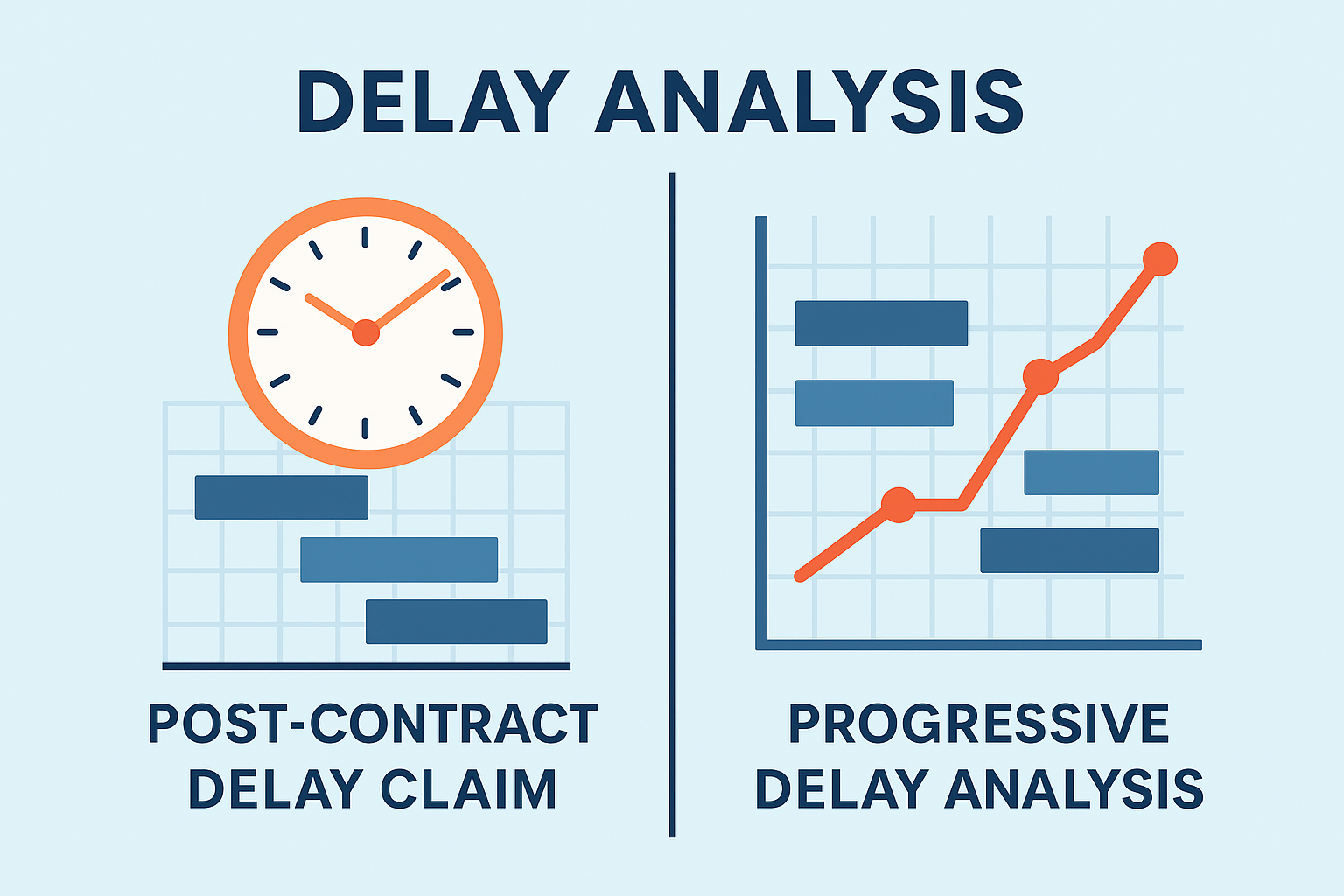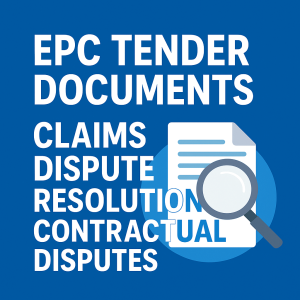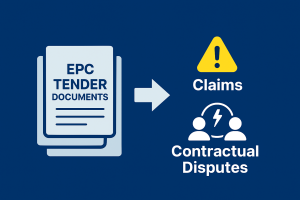Effective time management in large-scale projects requires a well-structured delay claim model. This delay claim model acts as both a contractual and analytical tool to identify, document, and justify project delays. Project managers typically choose between two primary approaches when preparing a delay claim:
-
Post-Contract Delay Claim
-
Progressive Delay Analysis
Post-Contract Delay Claim: A Final Aggregated Approach
In this delay claim model, the project team collects and analyzes all delay data at the end of the project or upon reaching a key milestone. This method suits projects that:
-
Are nearing completion, or
-
Have weak documentation during execution.
Although this approach simplifies the preparation process, it relies heavily on memory and incomplete records, which can undermine the credibility of the delay analysis and reduce its contractual defensibility.
Progressive Delay Analysis: Continuous and Documented
Unlike the post-contract method, the progressive delay analysis model involves continuous tracking and assessment of delays, typically on a bi-weekly basis. This approach offers several advantages:
-
Timely and accurate documentation
-
Clear identification of delays affecting the critical path
-
Faster response to sources of delay
-
Better preparation for contractual defense
By maintaining up-to-date records and linking each delay to project milestones, organizations gain better control and stronger justification in case of disputes.
How to Choose the Right Delay Claim Model?
The choice between the Post-Contract and Progressive delay claim models depends on several factors:
-
The organization’s project management maturity
-
Documentation culture
-
Availability of planning and monitoring tools
However, real-world experience shows that for long-term, large-scale projects, the progressive model delivers significantly more value due to its structured process, traceability, and preventive capabilities.
Several major Iranian companies have already adopted the progressive delay claim to systematically prepare delay claims for their national and industrial projects.



